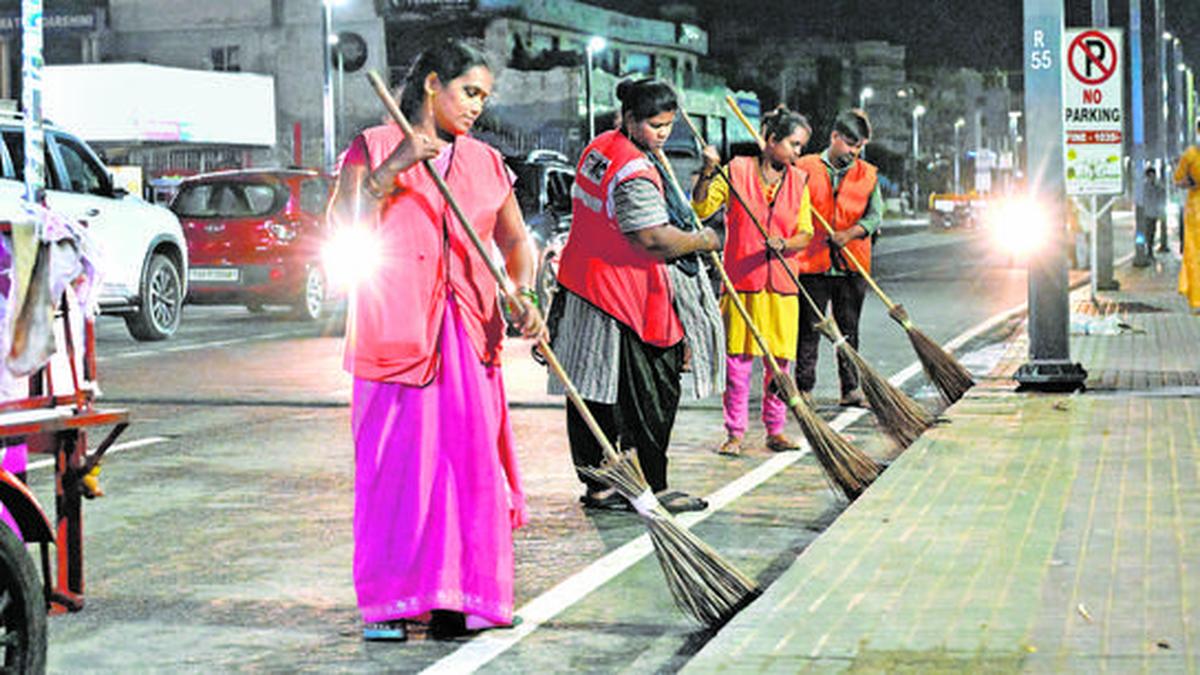
Sanitation workers of Visakhapanam: Swept under the rug Premium
The Hindu
Sanitation workers in Visakhapatnam face hardships, dangers, and disrespect while striving to keep the city clean at night.
It is late evening. A chill has descended on the otherwise humid city of Visakhapatnam thanks to a steady downpour over the past few days, prompting residents to snuggle under cozy quilts through the night — a luxury L. Padmavathi (name changed on request) cannot afford. Duty calls. At 40, this sanitation worker from One Town prepares for her night shift with the Greater Visakhapatnam Municipal Corporation (GVMC). Her shift begins at 10:30 p.m. and ends at 6.30 a.m.
Padmavathi lives in a small group house, paying ₹5,500 in rent — almost a third of her monthly salary, which is ₹18,500. “What else can one expect in a city like Vizag?” she asks.
Her three-room house is cold and uninviting. Paint is peeling off the walls, and the floor is rough and uneven. A bucket is placed in a corner to collect rainwater trickling through the roof. Pictures of her elder daughter and son-in-law adorn the almirah.
Padmavathi keeps glancing at her wall clock. She has learnt the hard way to never turn up late for work, even by a few minutes. As the clock strikes 9, she sits for dinner. A simple meal — rice, lentils and fried potato. She then goes for her bath, followed by prayers to portraits of Hindu gods affixed to her walls.
Right on cue, her younger daughter Jyothi emerges from the kitchen with two cups of tea. This is a ritual every time Padmavathi heads off on a night shift. As the mother and daughter drink their tea in silence, Padmavathi steels herself for what lies ahead — eight hours of scooping up garbage as the city soundly sleeps.
She then makes her way to the One Town junction, wearing her reflective safety jacket and clutching her two-litre water bottle which she will have to manage with for the rest of the night. At the junction, several other workers like her gather. A couple of ‘sanitary inspectors’, the low-level bosses, take biometric attendance of the workers. The workers are then split up into groups and are assigned their duties for the night.
Sanitation workers unanimously agree that the night shift is the hardest, more so for women workers. Apart from the usual challenge of handling garbage, they are faced with the constant threat of hit-and-run incidents, eve-teasing, and harassment by inebriated people and anti-socials.











